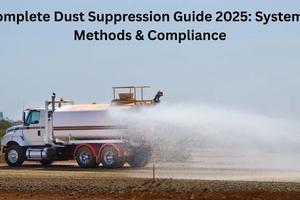Supporting the Mental Health of Foster Children - How Caregivers Can Provide Crucial Support for Healing And Development

Key Takeaways
Essential insights to remember
Foster children experience significantly higher rates of mental health issues, with studies showing 50-80% of children in care have psychological needs requiring intervention.
Trauma, attachment disorders, PTSD, anxiety, and depression are among the most common mental health challenges faced by children in foster care.
Evidence-based therapeutic approaches like trauma-focused CBT and TBRI (Trust-Based Relational Intervention) show promising results for foster children.
Foster parents play a crucial role in mental health outcomes through trauma-informed caregiving and creating stable, supportive environments.
Early intervention and continuous mental health support throughout placement transitions are essential for positive long-term outcomes.
Being a foster child brings a lot of mental health issues with it. Some children blame themselves for the family breaking apart. Foster children are required to adapt to their foster homes, which are new environments with strangers.
Apart from the foster parents, there might be biological children to adjust themselves to. Over time, relationships are formed, and if the child is moved again, they go through heartache and grieving for the loss of family and siblings.
Seeing Through Their Eyes
Foster children have been exposed to abandonment, neglect, and/or abuse in their biological homes, which led to them being whipped away from their families. Some of these children may have gone through the terrifying experience of police arriving at their homes with sirens blaring.
They may have seen one or both of their parents arrested. Despite the wrongs committed by their parents, many foster children long to be reunited with their birth families and cope with this sense of loss daily. They dream of a perfect reunion where none of the harm they endured took place or will be repeated.
The bad primary home experiences result in foster children who are unable to trust initially, and who will take a long time before they can believe that they are safe and that their needs will be met. Many have gone without regular food, sleep, or schooling.
Others also carry physical scars. Negative events and circumstances increase the likelihood of these children being diagnosed with mental health conditions over and above the adjustments that are required of them.
The Role of Foster Parents
The primary role of a foster parent is to provide a stable home environment where basic needs are met. Additionally, foster children need to be exposed to normal and enjoyable events, such as eating out or going skating. It is important to provide them with enrichment, calm, and dependability.
Foster children are more likely to behave in unexpected ways and a lot of patience is needed. For example, many younger foster children will wet the bed. Remain cheerful and reassure them that it’s okay while you change them into dry clothes and remake the bed. These youngsters may have difficulty falling asleep, or they may wake during the night. They may also cry often without seeming cause.
Older foster children may also have sleep and eating problems. They may display unreasonable anger, given the situation, but not irrational, given their background. Avoid reacting. Remain calm and tell them you are available to talk when they are ready.
Teens will often isolate themselves and need to be gently encouraged to participate in family activities, with the reassurance that they can go to their rooms if they start to feel overwhelmed.
Taking on the Foster Role
There is a growing need for foster parents, with statistics indicating that 9,200 more carers are needed. Agencies strive to provide foster parents with all the tools and financial support for the child to thrive. You can visit sites like thefca.co.uk for more information about fostering.
Common Mental Health Challenges
Foster children experience significantly higher rates of mental health issues compared to their peers. Studies show that 50-80% of children in foster care have psychological needs requiring professional intervention. Trauma, attachment disorders, PTSD, anxiety, and depression are among the most common challenges these children face.
The experience of separation from biological families, combined with potential previous abuse or neglect, creates complex emotional responses that may manifest as behavioral problems. Many foster children struggle with feelings of abandonment, identity confusion, and difficulty forming new attachments.
Foster care children's mental health statistics indicate that early intervention is crucial, as untreated psychological issues can affect development throughout their lives.
Treatment and Support Systems
Therapeutic foster care has emerged as an effective approach for children with emotional difficulties and mental health issues. Various therapy modalities, including trauma-focused cognitive behavioral therapy and play therapy, show promising results for foster children coping with trauma.
Counseling for foster children provides a safe space to process complex emotions and develop healthy coping mechanisms. Mental health services for children in foster care should be comprehensive, addressing both immediate needs and long-term emotional development.
Foster parents play a vital role in mental health outcomes through trauma-informed caregiving and creating stable, supportive environments. The foster care system increasingly recognizes the importance of psychological screening and continuous mental health support throughout placement transitions.
Building Resilience Together
Emotional support for foster children comes from many sources - foster parents, social workers, counselors, and communities. Foster children with mental health issues benefit enormously from consistent routines, clear expectations, and positive reinforcement.
Developing emotional intelligence in these children helps them identify and manage their feelings appropriately. Resources for foster children's mental health are available through various agencies, support groups, and online platforms.
The behavioral and emotional needs of foster children require patience, understanding, and specialized knowledge from caregivers. By addressing trauma and providing appropriate psychological support, we can help these children build resilience and work toward healing.
Long-term Outcomes and Advocacy
Research on foster children and trauma suggests that with proper support, many can overcome their challenging beginnings. However, the mental health of children placed in foster care remains a critical concern requiring ongoing attention.
Foster care children's mental health statistics highlight the need for systemic improvements in how we support these vulnerable young people. Advocacy organizations work to ensure that children in foster care receive necessary mental health resources and that foster parents are adequately trained to handle emotional and behavioral challenges.
When foster parents help their children heal from trauma through consistent support and appropriate interventions, they contribute significantly to breaking cycles of adversity and creating pathways to healthier futures.
If you have a spare bedroom and feel you could become a foster parent, get in touch with an agency.





